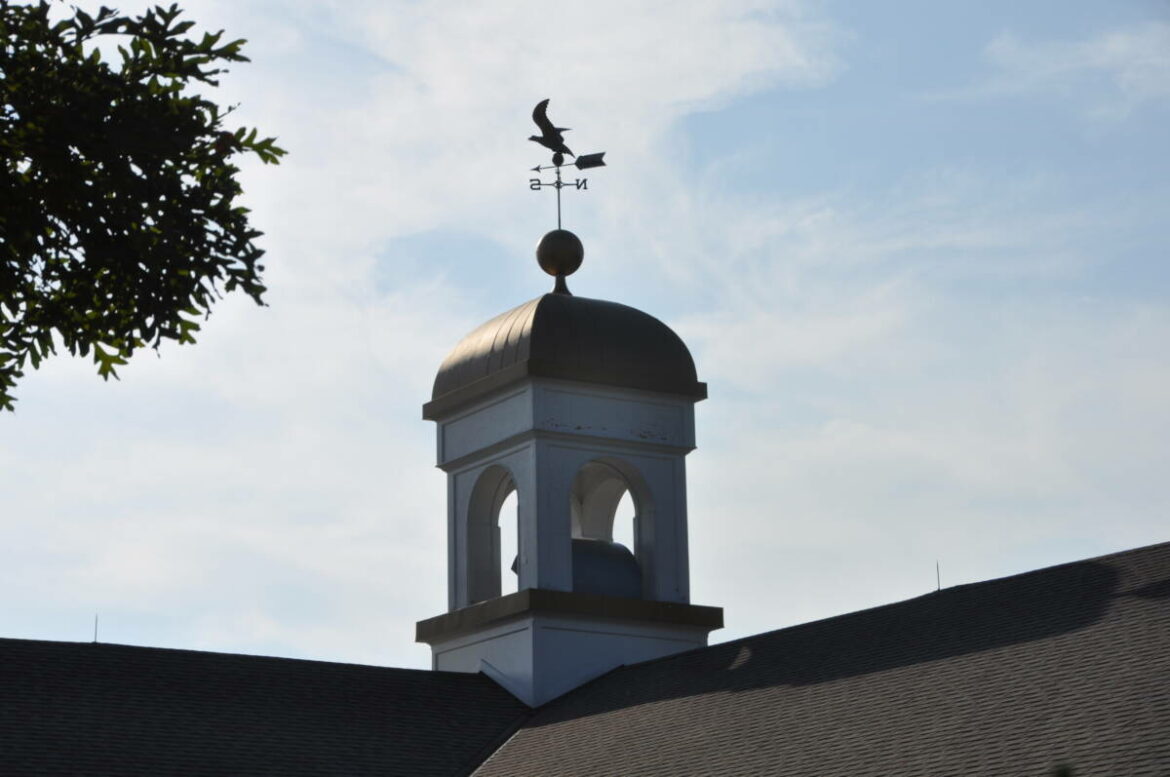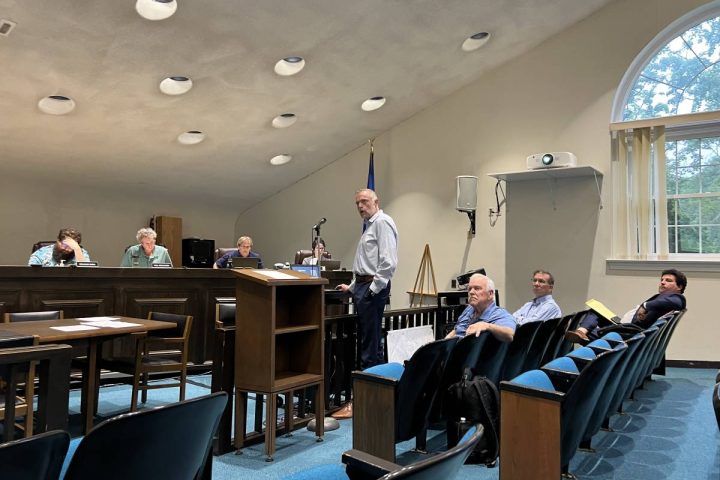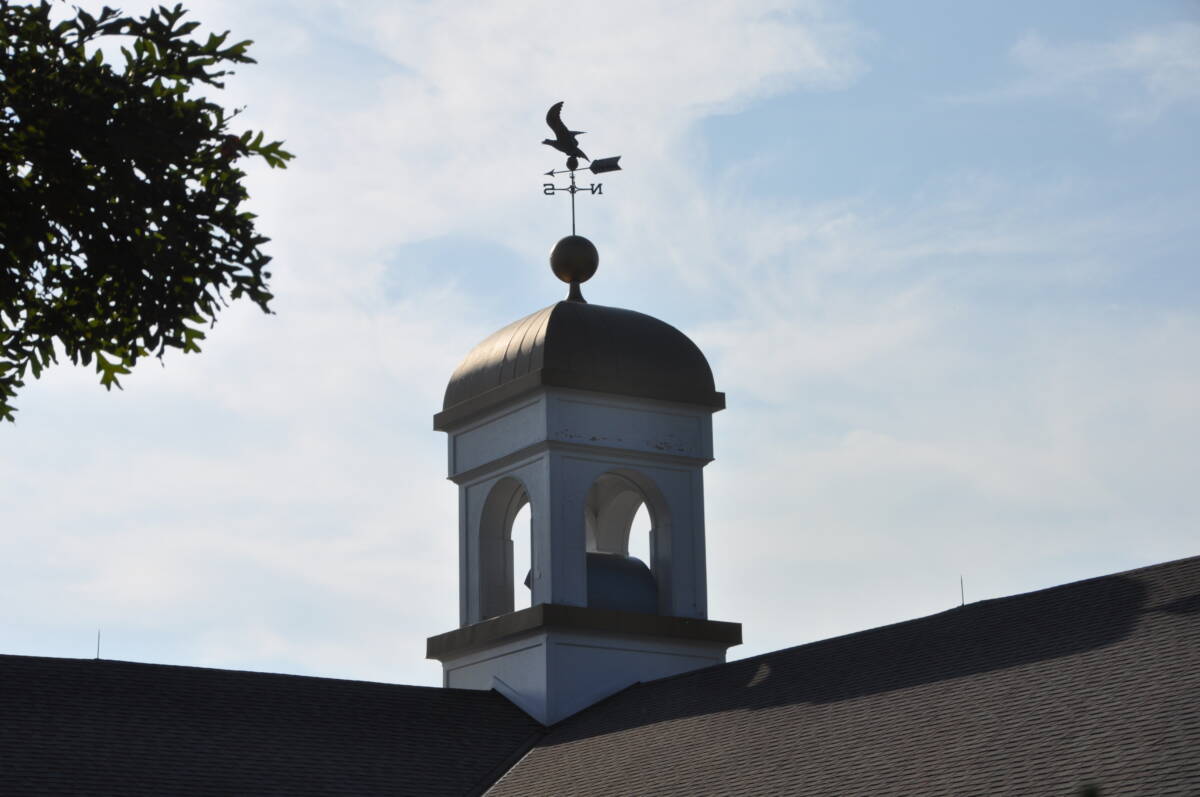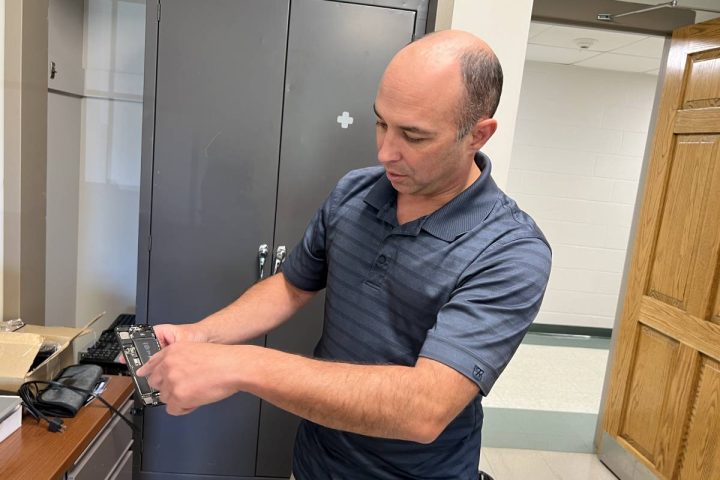MONROE, CT — Town Council members approved a revised motion to exempt municipal property from town zoning and subdivision regulations for a period of one year, unless the Council decides to terminate it sooner.
The exemption is meant to avoid delays in the project to transform St. Jude School into a community center, while securing a $750,000 state grant, as well as for the town to avoid being required to pay a fee in lieu of open space, estimated to be $1 million, according to Town Attorney Frank Lieto.
Should anything not conform with town zoning regulations, the revised language of the motion requires the Planning and Zoning Commission to hold a public hearing for the project.
The town attorney performed more research on the issue after strong opposition was expressed during the Council’s meeting on April 23.
The Town Council approved the measure by a vote of 7 to 2 Tuesday night with Chairman Jonathan Formichella, Vice Chair Enid Lipeles, Vincent Duva, Kevin Reid, Sean O’Rourke, Dona-Lyn Wales and Jason Maur voting in favor, and Cathy Kohut and Janice Persico voting no.
If a town project conforms with the regulations and municipal properties are exempt, Kohut said she did not like the fact that there would be no Planning and Zoning Commission hearing at all, in which neighboring property owners and other residents could provide input and air concerns.
Prior to the vote, Kohut also contended that a $1 million fee in lieu of open space would be money well spent, because it would set aside more funds for open space acquisitions.
Persico said all of the residents she spoke to about the proposal to exempt municipal property from the regulations opposed the measure, though she noted that many did not understand the details of it.
She expressed concerns over the long list of municipal properties the exemption will apply to and over the possibility of the one year sunset period being extended.
During public comments, one resident, Paula Jelly of Cottage Street, spoke on the issue. She told the Council she was concerned over the proposal to exempt municipal property.
“Our first selectman ran on the premise that things would be transparent,” she said. “If this proposed law is passed, there will be no transparency of what’s going on on town property.”
“In the spirit of complete transparency, people should understand, by statute this can only be approved by this legislative body,” Rooney said. “It’s not just the first selectman. It’s a group. I recognize this body is doing good work, serious work. To me, this is good government. This cannot pass unless this body adopts it.”
Rooney reiterated that the goal is not to earmark $1 million of taxpayer money for open space, as well as not holding up receiving a $750,000 grant for the St. Jude project.
Formichella said a subcommittee will be formed to study the impact of a town exemption from zoning and subdivision regulations.
He also told the Council how the Planning and Zoning Commission unanimously approved a municipal referral for the language in the motion Council members were voting on, without any additional comments.
“I would like to thank our town attorney and first selectman for hearing the concerns of our Town Council and the public,” Formichella said. “Thank you for your tremendous efforts in getting it before us this evening.”
Maur said he spent time speaking with Lieto during the crafting of the revised language for the motion. “I was definitely one of those who had major concerns,” Maur said.
While Maur said he does not think the motion is a perfect solution (he would have preferred a subcommittee do more work on it), he called it a fair solution for the town’s needs.
He said all of his conditions of approval were met, including the sunset provision, the formation of a subcommittee to review its use, and a Planning and Zoning Commission public hearing should anything not conform with town regulations, which would also give the commission the option to approve or deny.
Maur said Lieto assured him the exemption complies with state statutes. “I do plan on supporting it this evening,” Maur said.
Duva expressed his hope the addressing of initial concerns would convince people to support the measure. “If it did not have the sunset clause, I would not support it,” he said.
O’Rourke said a key alteration allows the Council to terminate the exemption earlier than one year. He pointed out how the town’s boards and commissions are made of up laypeople who rely on experts and want to do what’s best for their town.
“There were reservations on both sides of the aisle with this proposal,” O’Rourke said. “This was reviewed, vetted, altered and made better.”
“I had my own reservations, but the only way to move this forward was to bring it to Town Council,” Rooney said. “I knew there would be turbulence here. Your job is to speak for the people. There was no lack of transparency. This is uber transparency. As first selectman, I’m really proud. Most towns have a majority pass what they want, but we worked together. To me, this is great government.”
All respectful comments with the commenter’s first and last name are welcome.







This gives the Town a back door to rezone Chalk Hill and to do anything they want to our parks. Stay tuned for developers to jump all over this!
Hi Robert, this is only for town government owned property, municipal, not private land.
Chalk Hill School is town owned.
My bad, I breezed over “Chalk Hill” in your comment.